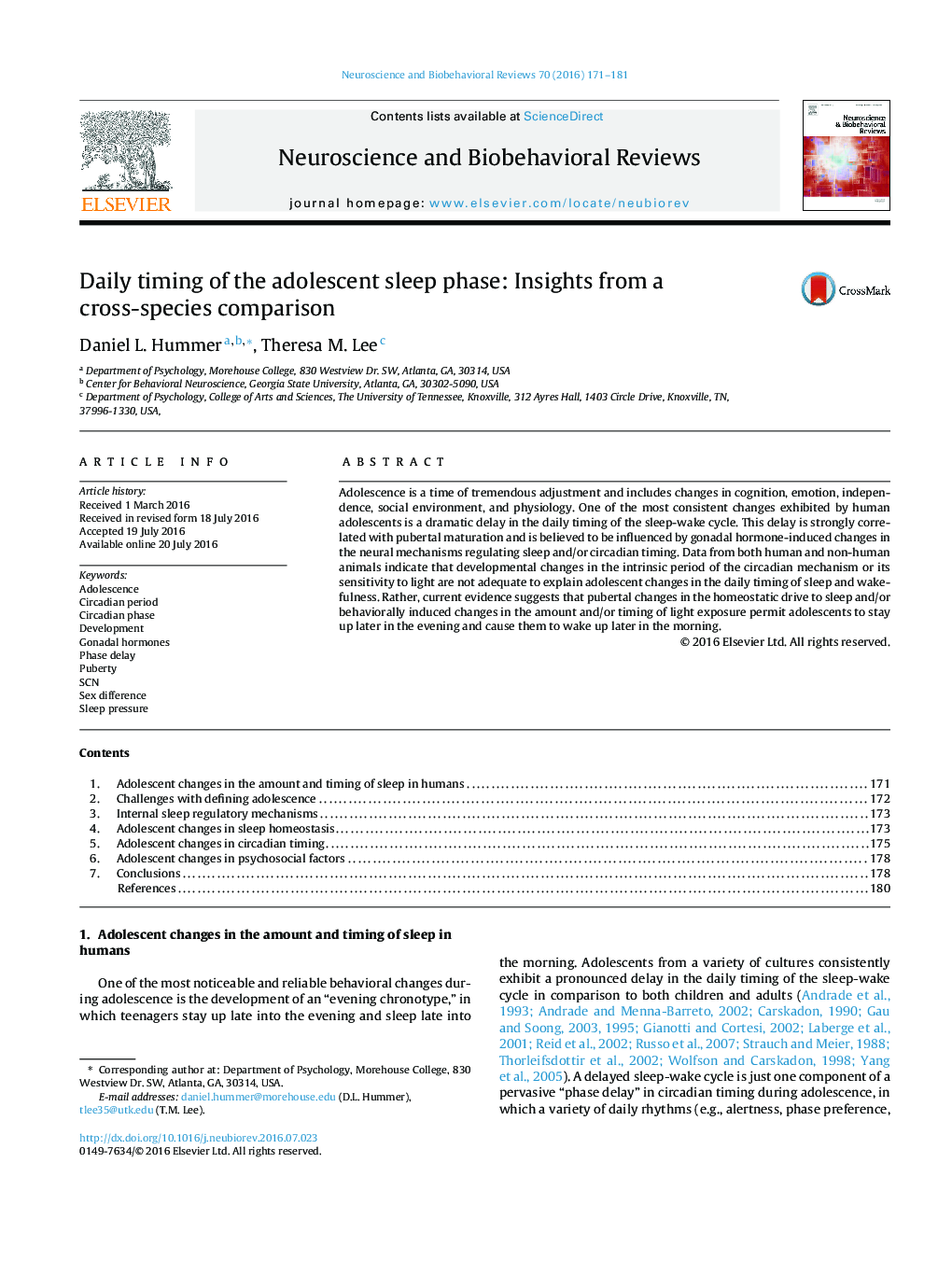| Article ID | Journal | Published Year | Pages | File Type |
|---|---|---|---|---|
| 5043595 | Neuroscience & Biobehavioral Reviews | 2016 | 11 Pages |
â¢Adolescents exhibit a delay in the daily sleep and activity rhythm.â¢Pubertal changes in gonadal hormones are required for the delay in daily rhythms.â¢The delay is unlikely caused by changes in circadian period or light sensitivity.â¢Changes in sleep drive may permit adolescents to stay up later in the evening.â¢Changes in timing or amount of light exposure may promote an evening chronotype.
Adolescence is a time of tremendous adjustment and includes changes in cognition, emotion, independence, social environment, and physiology. One of the most consistent changes exhibited by human adolescents is a dramatic delay in the daily timing of the sleep-wake cycle. This delay is strongly correlated with pubertal maturation and is believed to be influenced by gonadal hormone-induced changes in the neural mechanisms regulating sleep and/or circadian timing. Data from both human and non-human animals indicate that developmental changes in the intrinsic period of the circadian mechanism or its sensitivity to light are not adequate to explain adolescent changes in the daily timing of sleep and wakefulness. Rather, current evidence suggests that pubertal changes in the homeostatic drive to sleep and/or behaviorally induced changes in the amount and/or timing of light exposure permit adolescents to stay up later in the evening and cause them to wake up later in the morning.
